Afreximbank selects Nigeria for healthcare rollout
 The President of the African Export-Import Bank (Afreximbank), Dr. Benedict Oramah, has announced that Nigeria has been selected as one of three countries for the initial rollout of its new programme aimed at improving healthcare delivery in Africa.A statement by Afreximbank on Wednesday said that Dr. Oramah told a delegation from the Nigerian Embassy in Cairo that the programme, which is being implemented in collaboration with United Kingdom-based Kings College Hospital Management Limited, would also be rolled out in Ghana and Kenya.
The President of the African Export-Import Bank (Afreximbank), Dr. Benedict Oramah, has announced that Nigeria has been selected as one of three countries for the initial rollout of its new programme aimed at improving healthcare delivery in Africa.A statement by Afreximbank on Wednesday said that Dr. Oramah told a delegation from the Nigerian Embassy in Cairo that the programme, which is being implemented in collaboration with United Kingdom-based Kings College Hospital Management Limited, would also be rolled out in Ghana and Kenya.
He commended the Nigerian Ministry of Health for its support of the initiative, which seeks to develop world class medical and health facilities across Africa, with the establishment of medical centres of excellence and commencing with haematological medicine. He said that Nigeria was the largest recipient of Afreximbank loans, having received almost 33 percent of the portfolio, or $21 billion, from the Bank since it started operations. According to him, the facilities went mainly to financial institutions for activities in the agricultural, electricity supply, value added activities and other sectors.
New blood thinner 'antidote' to help doctors move past warfarin
 A new class of blood thinners that competes with widely used warfarin should get a boost next year when an "antidote" that can reverse the medications' effects in an emergency is expected to enter the market, according to top U.S. heart doctors and investors. Xarelto, from Bayer AG and Johnson & Johnson, and Eliquis, sold by Bristol-Myers Squibb and Pfizer, were approved as safer and more convenient alternatives for preventing blood clots and strokes than warfarin. But there was one hitch: there was no way to quickly restore normal clotting for patients in need of emergency surgery or to stop a major bleeding episode, leading many doctors to hold off on prescribing the drugs.
A new class of blood thinners that competes with widely used warfarin should get a boost next year when an "antidote" that can reverse the medications' effects in an emergency is expected to enter the market, according to top U.S. heart doctors and investors. Xarelto, from Bayer AG and Johnson & Johnson, and Eliquis, sold by Bristol-Myers Squibb and Pfizer, were approved as safer and more convenient alternatives for preventing blood clots and strokes than warfarin. But there was one hitch: there was no way to quickly restore normal clotting for patients in need of emergency surgery or to stop a major bleeding episode, leading many doctors to hold off on prescribing the drugs.
"It may be uncommon, but they're memorable when they happen," Dr. Charles Pollack, an emergency physician at Thomas Jefferson University Hospital in Philadelphia, said of major bleeding events. "We didn't have a specific reversal strategy for these drugs, and I think that left people feeling a bit insecure," added Pollack, who has done clinical work on a recently approved antidote to Boehringer Ingelheim's rival blood clot preventer Pradaxa. Small drugmaker Portola Pharmaceuticals this month applied for U.S. approval of a drug called andexanet alfa that rapidly reverses the effect of Xarelto and Eliquis. It is expected to enter the market in 2016.
Few Doctors In The Face Of Elitism
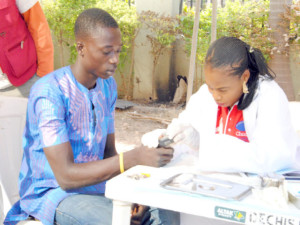 Nigerians are shocked with the recent revelation that 100 years will be needed for the country to be able to produce the number of doctors it needs based on the World Health Organisation (WHO) standard which stipulates the ratio of 1:600 doctors to patients respectively, and at most, 1:1000. The reason cannot be far-fetched as the medical profession has become elitist with undergraduates paying about N3 million per session, thereby making it very difficult for the brilliant but average Nigerian to study the course to completion.
Nigerians are shocked with the recent revelation that 100 years will be needed for the country to be able to produce the number of doctors it needs based on the World Health Organisation (WHO) standard which stipulates the ratio of 1:600 doctors to patients respectively, and at most, 1:1000. The reason cannot be far-fetched as the medical profession has become elitist with undergraduates paying about N3 million per session, thereby making it very difficult for the brilliant but average Nigerian to study the course to completion.
In a developing country with a population of approximately 170 million people whose majority are prone to diseases and malnutrition, only 35,000 medical doctors can be said to be in practice, which is equivalent to the ratio of 1:4,857, a far cry from global standards and best practices. This is not to say that adequate number of undergraduates are not admitted into the nation’s higher institutions but upon graduation, many seek for greener pastures, thereby increasing the dwindling number in the profession.
FG Urges NGOs To Partner With Health Sector
 The federal government has sought the support of the Non-Governmental Organizations (NGOs) in the health sector. Minister of health, Prof. Adewole made this call during the summit of international and local NGOs in Abuja. He pointed out that the Ministry will put up structures that will enable it plan for short, medium and long term, adding that the summit was to enable the NGOs to key in to the plan. He said further that the plan is achievable by working together as a team in terms of having a common objective. He pledged that the ministry will be accountable, accessible , and will have no bureaucratic bottleneck in its dealing with them.
The federal government has sought the support of the Non-Governmental Organizations (NGOs) in the health sector. Minister of health, Prof. Adewole made this call during the summit of international and local NGOs in Abuja. He pointed out that the Ministry will put up structures that will enable it plan for short, medium and long term, adding that the summit was to enable the NGOs to key in to the plan. He said further that the plan is achievable by working together as a team in terms of having a common objective. He pledged that the ministry will be accountable, accessible , and will have no bureaucratic bottleneck in its dealing with them.
The Minister emphasised that there was need for the Ministry to prioritise its programmes considering the current economic situation in the country, adding that the programmes would be dealt with in stages. He expressed that the plan of the Ministry was to partner with states and local governments in taking the reforms in the sector to the grassroots, adding that there is need for focus in achieving the reforms by targeting the poor, improving health facility and welfare of the health workers. Prof. Adewole explained that Public Private Partnership will be key in solving Primary Health Care issues like maternal and child mortality, cancer and HIV.
Face-of With Osun Govt: Doctors Seek Royal Fathers’ Intervention
 As the 7-day ultimatum issued to the striking doctors in Osun state by government to return to work or be sacked expired during the ongoing public holiday, the National Association of Government General Medical and Dental Practitioners has appealed for the intervention of traditional rulers and elders of the society to avert total collapse of health service in the state. Briefing journalists in Osogbo, the state capital, the National President NAGG.MDP, Dr. Nurud-din Akindele, urged the statesmen to appeal to governor, Mr. Rauf Aregbesola to not only withdraw the sack threat to the doctors but allow for negotiations on the matter.
As the 7-day ultimatum issued to the striking doctors in Osun state by government to return to work or be sacked expired during the ongoing public holiday, the National Association of Government General Medical and Dental Practitioners has appealed for the intervention of traditional rulers and elders of the society to avert total collapse of health service in the state. Briefing journalists in Osogbo, the state capital, the National President NAGG.MDP, Dr. Nurud-din Akindele, urged the statesmen to appeal to governor, Mr. Rauf Aregbesola to not only withdraw the sack threat to the doctors but allow for negotiations on the matter.
The National President noted that the sack threat would not achieve any meaningful result because members of the body are not ready to return to work under the present condition in health sector of the state. Akindele, who regretted that the industrial action embarked upon by the doctors since September has put in risk health of many people in the state, stressed that the demands of the doctors, if not met would force them to paralyze health sector in the state.nHe said: “the government of Osun state should as a matter of urgency and in the interest of the public, invest in equipping the hospitals with up-to-date equipment, provide adequate manpower and make the working environment more conducive.
Guinea declared free of disease that killed over 2,500
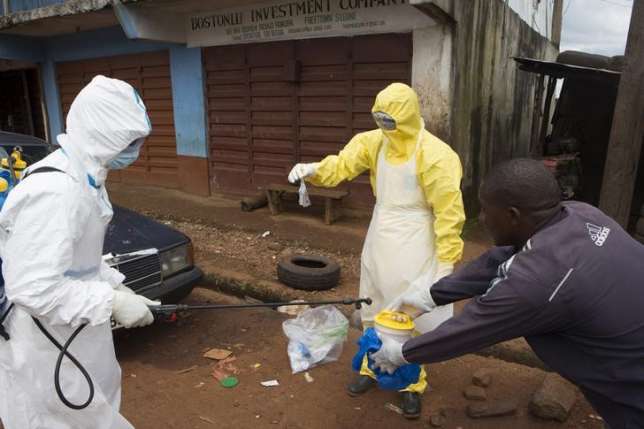 Guinea was declared free of Ebola on Tuesday after more than 2,500 people died from the virus in the West African nation, leaving Liberia as the only country still awaiting a countdown for the end of the epidemic. People in the capital, Conakry, greeted the declaration by authorities and the U.N. World Health Organization with mixed emotions given the deaths and the damage the virus did to the economy and the country's health and education sectors. "Several of my family are dead. This situation has shown us how much we must fight for those who are survivors," Fanta Oulen Camara, who works for Medecins Sans Frontieres Belgium (Doctors Without Borders), told Reuters.
Guinea was declared free of Ebola on Tuesday after more than 2,500 people died from the virus in the West African nation, leaving Liberia as the only country still awaiting a countdown for the end of the epidemic. People in the capital, Conakry, greeted the declaration by authorities and the U.N. World Health Organization with mixed emotions given the deaths and the damage the virus did to the economy and the country's health and education sectors. "Several of my family are dead. This situation has shown us how much we must fight for those who are survivors," Fanta Oulen Camara, who works for Medecins Sans Frontieres Belgium (Doctors Without Borders), told Reuters.
"After I got better, the hardest thing was to make people welcome me. Most people that normally supported me abandoned me. Even the school where I was an instructor dropped me. It was very hard," said Camara, 26, who fell ill in March 2014. Ebola has orphaned about 6,200 children in Guinea, said Rene Migliani, an official at the national coordination centre for the fight against Ebola. There were more than 3,800 Ebola cases in Guinea out of more than 28,600 cases globally with 11,300 deaths, according to figures from the WHO. Almost all the cases and deaths were in Guinea and its neighbours Liberia and Sierra Leone.
Ebola: WHO Urges Countries To Continue Airport Screenings
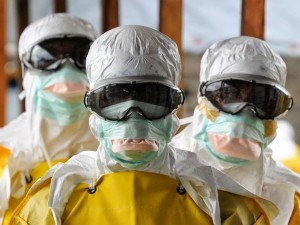 To avoid a fresh outbreak of the Ebola Virus Disease, the World Health Organisation (WHO) has urged States to continue their conduct of exit screening of all persons at international airports, seaports and major land crossings, for unexplained febrile illness consistent with potential Ebola infection. This appeal was made in a statement obtained by our correspondent at the weekend shortly after a meeting of the Emergency Committee convened by the WHO Director-General under the International Health Regulations (2005) (IHR) regarding the Ebola Virus Disease (EVD) outbreak in West Africa
To avoid a fresh outbreak of the Ebola Virus Disease, the World Health Organisation (WHO) has urged States to continue their conduct of exit screening of all persons at international airports, seaports and major land crossings, for unexplained febrile illness consistent with potential Ebola infection. This appeal was made in a statement obtained by our correspondent at the weekend shortly after a meeting of the Emergency Committee convened by the WHO Director-General under the International Health Regulations (2005) (IHR) regarding the Ebola Virus Disease (EVD) outbreak in West Africa
According to the Committee, exit screening should consist of, at a minimum, a questionnaire, a temperature measurement and, if there is a fever, an assessment of the risk that the fever is caused by Ebola virus.nIt also said States should share exit screening data with WHO on a regular basis, stressing that such exit screening must be maintained for at least 42 days after the last case has twice tested negative for Ebola virus; countries are encouraged to maintain exit screening until EVD transmission has stopped in the entire sub-region.
Retirement: Unions Demand Enforcement Of Public Service Rule For CMDs
 Nigeria Medical Association (NMA) and other Health Unions yesterday called on the federal government to enforce the public service rule on the tenure of Chief Medical Directors (CMDs) and Medical Directors in the nation’s tertiary hospitals. The unions in an interview with LEADERSHIP said government can avert unnecessary unrest in the various health institutions by ensuring due process in its appointments.
Nigeria Medical Association (NMA) and other Health Unions yesterday called on the federal government to enforce the public service rule on the tenure of Chief Medical Directors (CMDs) and Medical Directors in the nation’s tertiary hospitals. The unions in an interview with LEADERSHIP said government can avert unnecessary unrest in the various health institutions by ensuring due process in its appointments.
It would be recalled that a circular from the Head of Civil Service dated 27th of July 2009 signed by former Head of the Civil Service of the Federation, Mr Stephen Orosanye, with the title: “Interpretation of Public Service Rules on Compulsory Retirement Age/Year of Service in Relation to Appointment of Serving Public Officers,” reads: “The attention of the federal government has been drawn to the need to correct the interpretation of the public career officers who are serving as Executive Directors or Director-General, Chief Executive of parastatals, agencies.
This Is How We Got To Zero Ebola Cases In West Africa
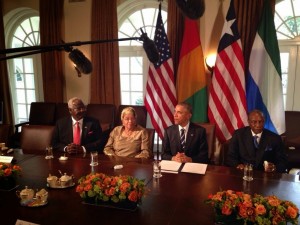 The world has now gone over 40 consecutive days without a single reported Ebola case. Here’s how we helped make that possible For the first time since this outbreak was detected in West Africa in early 2014, the world has now gone over 40 consecutive days without a single reported Ebola case. The World Health Organization (WHO) announced that Guinea has successfully halted Ebola transmission and now joins Sierra Leone and Liberia in recovering from this devastating disease. This represents a significant milestone for Guinea, West Africa, and the international community.
The world has now gone over 40 consecutive days without a single reported Ebola case. Here’s how we helped make that possible For the first time since this outbreak was detected in West Africa in early 2014, the world has now gone over 40 consecutive days without a single reported Ebola case. The World Health Organization (WHO) announced that Guinea has successfully halted Ebola transmission and now joins Sierra Leone and Liberia in recovering from this devastating disease. This represents a significant milestone for Guinea, West Africa, and the international community.
Today we reflect on what is possible when partners around the world come together to solve a common problem. Through the undaunted courage of local communities and heroes from around the world, West Africa was able to halt Ebola. The United States was proud to offer help along with partners around the world. Today we remember Ebola’s victims, and embrace the communities, families, healthcare workers, and survivors.
Lawmaker committed to child, maternal mortality reduction,
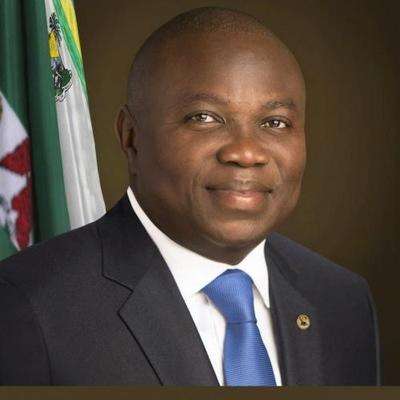 Mr Segun Olulade, the Chairman, Lagos State House of Assembly Committee on Health, says the state government will spare no effort in paring down child and maternal mortality rate in the state this year. Olulade (APC-Epe II) told the News Agency of Nigeria (NAN) in Lagos on Saturday that the legislative arm would give the executive the necessary support to reduce infant and maternal mortality. "We will look at the issue of children and see how to reduce infant mortality in the state". "In the same vein, maternal mortality is worrisome and legislative support will be provided to check the rate,’’ he said.
Mr Segun Olulade, the Chairman, Lagos State House of Assembly Committee on Health, says the state government will spare no effort in paring down child and maternal mortality rate in the state this year. Olulade (APC-Epe II) told the News Agency of Nigeria (NAN) in Lagos on Saturday that the legislative arm would give the executive the necessary support to reduce infant and maternal mortality. "We will look at the issue of children and see how to reduce infant mortality in the state". "In the same vein, maternal mortality is worrisome and legislative support will be provided to check the rate,’’ he said.
Olulade, ex-Chairman, House Committee on Information, Strategy and Security in the 7th Assembly, said with the right policy and legislation infant and maternal mortality would be a thing of the past. He promised that the Akinwumi Ambode administration would give the health sector a new lease of life in the current year. Olulade, however, urged primary and secondary healthcare providers in the state to show more care for patients. "Complaints about the negative attitude of some health workers have necessitated the call for attitudinal change among them.’’






